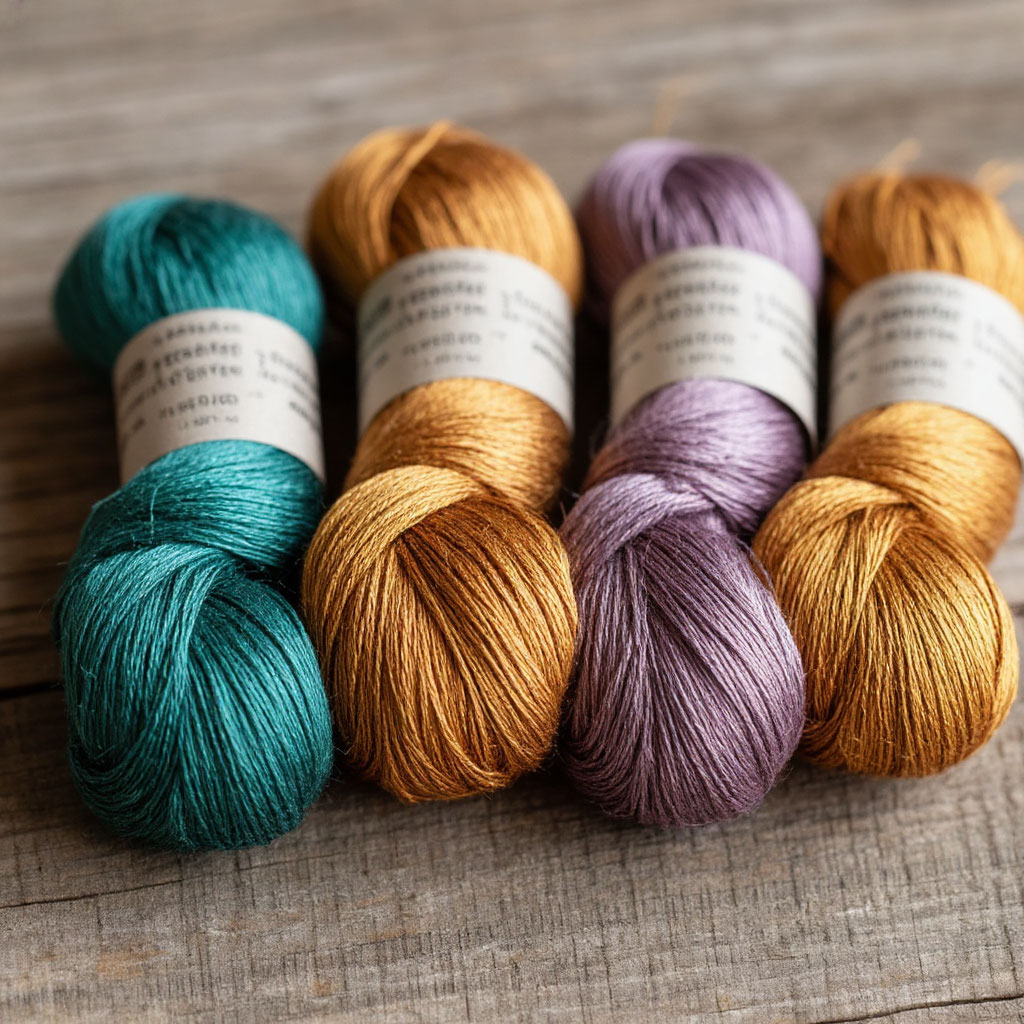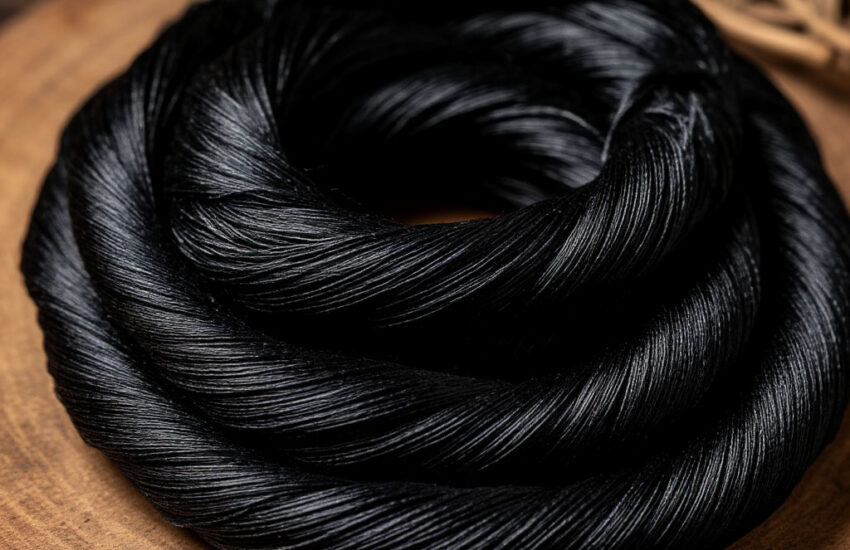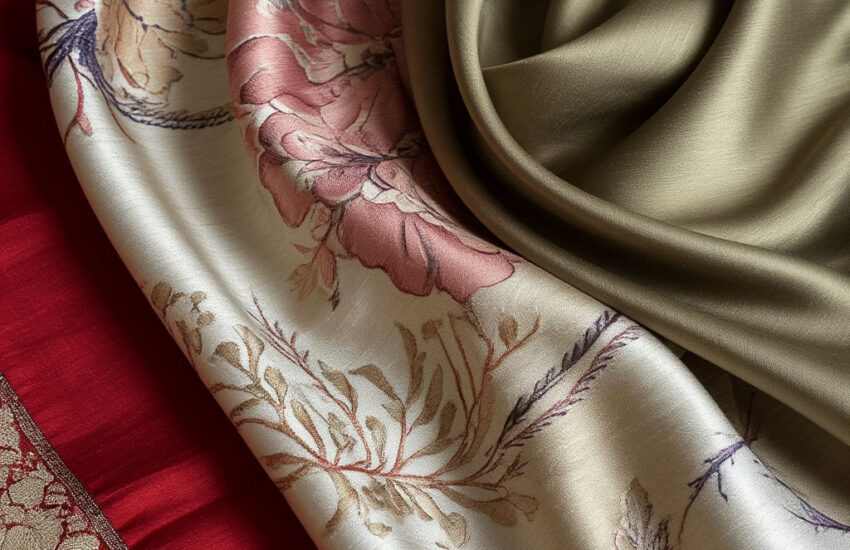Hemp Silk Threads: Luxurious and Sustainable Sewing Material
Contents
- 1 Why Hemp Silk Threads Are a Sustainable Luxury
- 2 Hemp Silk vs. Traditional Silk: Key Differences
- 2.1 Fiber Origins and Production Methods
- 2.2 Environmental Impact and Sustainability
- 2.3 Physical Properties and Performance
- 2.4 Practical Handling and Sewing Experience
- 2.5 Cost and Accessibility Factors
- 2.6 Maintenance and Long-Term Care
- 2.7 Ethical Considerations
- 2.8 Optimal Applications
- 2.9 Durability and Longevity
- 2.10 Future of Sustainable Textiles
- 3 Best Sewing Projects for Hemp Silk Threads
- 4 Where to Buy High-Quality Hemp Silk Yarn
Are you tired of compromising between luxury and sustainability in your sewing projects? Meet hemp silk threads—the game-changer in eco-friendly textiles that brings together strength, softness, and planet-friendly production. Whether you’re a seasoned seamstress or a DIY enthusiast, this revolutionary material deserves a spot in your crafting kit.
In this deep dive, we’ll explore the benefits of hemp silk, how it stacks up against traditional silk, the best projects to try, and where to find top-quality yarn. Let’s unravel the magic of this sustainable superstar! At the end of the article, we suggest downloading a checklist so that you can remind yourself at any time about all the intricacies of hemp silk.
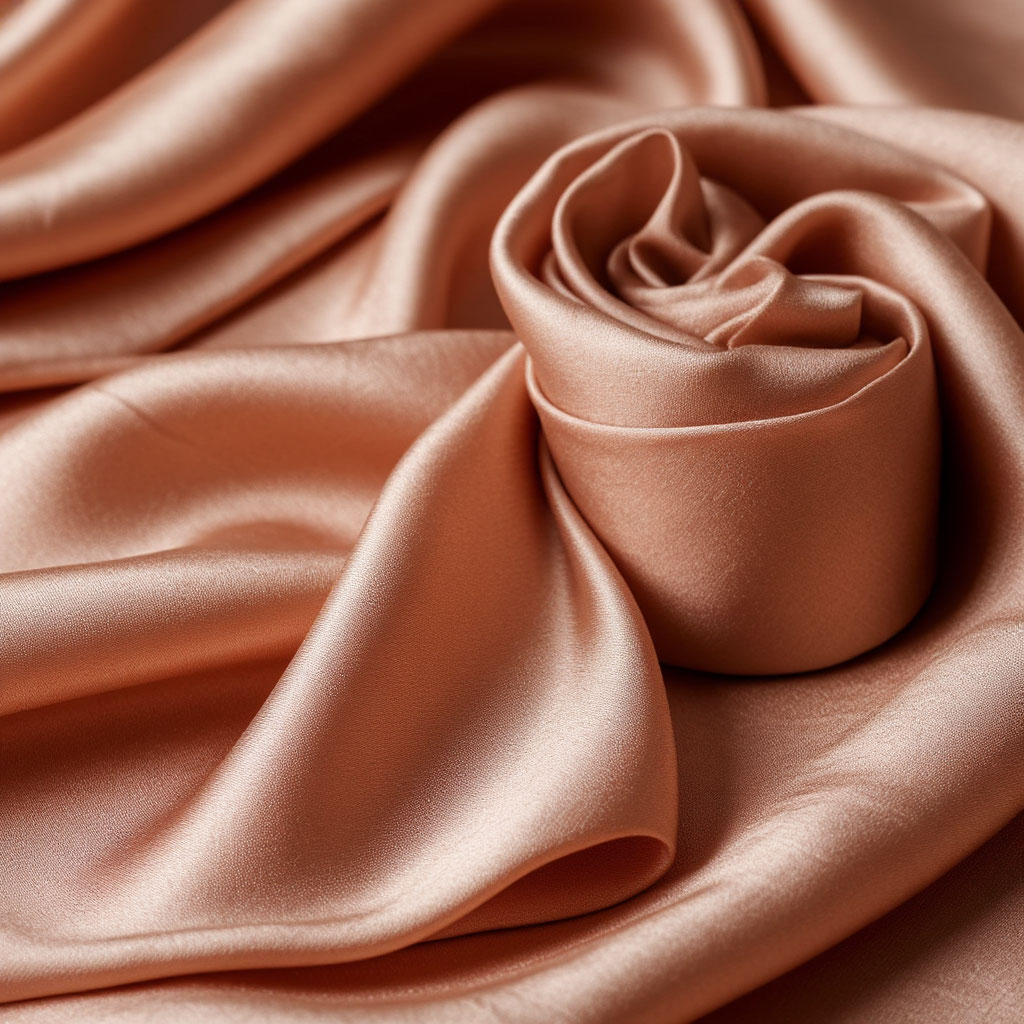
Why Hemp Silk Threads Are a Sustainable Luxury
In a world where fast fashion dominates, hemp silk threads emerge as a revolutionary alternative—blending opulence with environmental responsibility. But what exactly makes this material the gold standard for conscious creators? Let’s unravel the benefits of hemp silk and why it’s redefining luxury in the textile industry.
1. The Eco-Friendly Powerhouse
Unlike conventional fabrics, hemp silk threads are born from one of the planet’s most sustainable crops. Hemp requires no pesticides, thrives on minimal water, and regenerates soil health—making it a poster child for eco-friendly sewing threads. Compare this to water-guzzling cotton or synthetic polyester (derived from fossil fuels), and the choice becomes clear.
But the sustainability doesn’t stop at farming. Processing hemp into silky-soft fibers consumes fewer chemicals than traditional silk production, which relies on energy-intensive worm farming and harsh dyeing methods. For designers and hobbyists alike, this means every stitch carries a lighter ecological footprint.
2. Unmatched Durability Meets Elegance
Luxury shouldn’t mean fragility. While traditional silk snags and weakens over time, hemp silk threads boast remarkable tensile strength. This resilience makes them ideal for:
- Heirloom garments (think wedding dresses or tailored suits that last decades)
- High-traffic home textiles (upholstery, curtains, or table linens)
- Travel-friendly accessories (bags, hats, and scarves that endure daily wear)
Plus, hemp’s natural resistance to mold, UV rays, and odors ensures your creations stay pristine—no dry-cleaning chemicals required.
3. The Comfort Factor
Softness often comes at a cost (hello, delicate cashmere!), but hemp silk threads deliver cloud-like comfort without compromise. The fibers are:
- Breathable, wicking moisture away like premium linen
- Temperature-regulating, keeping you cool in summer and cozy in winter
- Hypoallergenic, making them safe for sensitive skin
This trifecta elevates hemp silk beyond a mere sustainable fabric alternative—it’s a wellness-focused choice for clothing, bedding, and even babywear.
4. Ethical Transparency
The dark side of traditional silk? Its production often involves silkworm boiling—a dealbreaker for vegans and animal lovers. Hemp vs. traditional silk isn’t just about durability; it’s a humanitarian win. Hemp silk is 100% plant-based, aligning with cruelty-free values while rivaling the sheen and drape of animal-derived silk.
5. A Circular Fashion Champion
True luxury is timeless, not disposable. Hemp silk’s biodegradability means it won’t clog landfills like polyester. At the end of its lifecycle, it decomposes naturally—closing the loop on waste. For brands embracing circular fashion, this is a game-changer.
6. The Future of Slow Fashion
Investing in hemp silk threads isn’t just a trend; it’s a statement. As consumers demand transparency and sustainability, this material answers the call with:
- Traceable supply chains (many brands share farm-to-thread journeys)
- Low carbon footprint (hemp absorbs more CO2 than it emits during production)
- Artisan empowerment (supporting small-scale eco-conscious spinners)
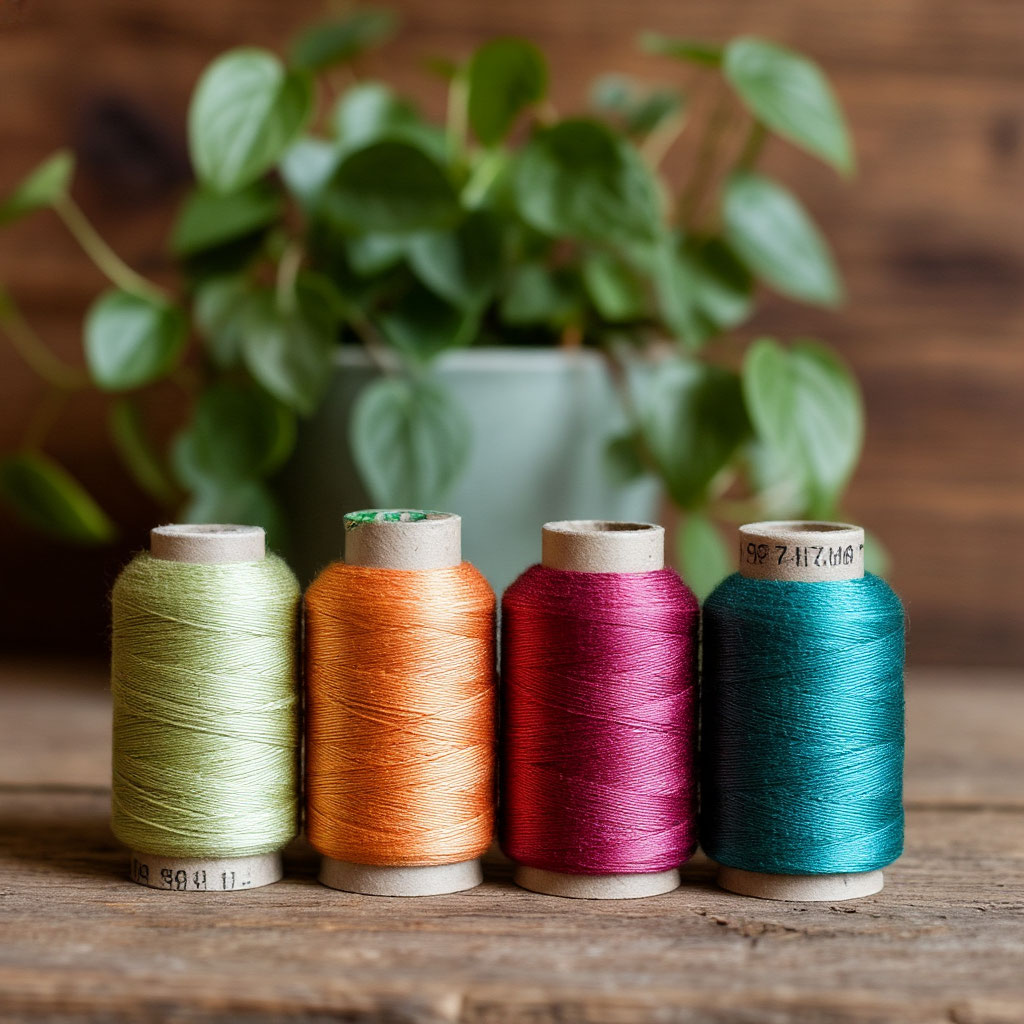
Hemp Silk vs. Traditional Silk: Key Differences
When choosing between hemp silk threads and traditional silk, crafters face an important decision that impacts both their projects and the environment. These two luxurious fibers represent fundamentally different approaches to textile production, each with unique characteristics that cater to specific needs. Let’s examine how these materials compare across several critical factors.
Fiber Origins and Production Methods
The journey from raw material to finished thread reveals stark contrasts. Traditional silk begins its life in silkworm cocoons, requiring careful cultivation of mulberry trees and labor-intensive harvesting processes. In comparison, hemp silk threads derive from the bast fibers of the Cannabis sativa plant, representing one of the most eco-friendly sewing threads available today. The production of hemp silk utilizes modern, sustainable processing techniques that transform durable plant fibers into remarkably soft threads.
Environmental Impact and Sustainability
The benefits of hemp silk become particularly evident when examining ecological factors. As a leading choice among sustainable fabric alternatives, hemp silk production:
- Requires significantly less water than traditional silk
- Grows without synthetic pesticides or fertilizers
- Actually improves soil health through natural cultivation methods
- Produces higher yields per acre compared to mulberry trees
Traditional silk production maintains a considerably larger environmental footprint due to:
- Intensive mulberry tree cultivation
- Energy-consuming cocoon processing
- Chemical treatments used in refinement
Physical Properties and Performance
While both fibers share a beautiful natural luster, their performance characteristics differ substantially. Hemp silk threads demonstrate:
- Superior tensile strength and durability
- Natural resistance to mold and bacteria
- Consistent performance in various humidity conditions
- Excellent shape retention over time
Traditional silk offers:
- Unmatched softness and delicate drape
- Superior moisture-wicking capabilities
- Finer texture for ultra-delicate work
- More luminous surface sheen
Practical Handling and Sewing Experience
The hemp vs. traditional silk comparison reveals important differences for crafters:
Hemp silk threads provide:
- Easier tension control during stitching
- Greater resistance to stretching and distortion
- Better performance in machine sewing
- Increased durability for frequently washed items
Traditional silk requires:
- More precise tension adjustments
- Greater care to prevent snagging
- Special handling for machine use
- Delicate washing methods
Cost and Accessibility Factors
As awareness of sustainable fabric alternatives grows, hemp silk threads offer:
- More competitive pricing structures
- Wider availability from ethical suppliers
- Consistent quality across production batches
- Growing selection from specialty retailers
Traditional silk remains:
- Priced at premium levels due to labor costs
- Available primarily through specialty suppliers
- Variable in quality depending on origin
- Subject to market fluctuations
Maintenance and Long-Term Care
The benefits of hemp silk extend to practical care requirements:
Hemp silk maintains its quality through:
- Machine washing on gentle cycles
- Resistance to wrinkling
- Colorfastness over time
- Minimal special storage needs
Traditional silk demands:
- Hand washing or professional care
- Immediate attention when wet
- Protection from direct sunlight
- Climate-controlled storage
Ethical Considerations
For environmentally conscious crafters, hemp silk threads represent:
- A completely vegan alternative
- Cruelty-free production methods
- Support for sustainable agriculture
- Reduced chemical usage
Traditional silk production raises concerns about:
- Silkworm treatment during harvesting
- Energy-intensive manufacturing
- Chemical use in processing
- Water consumption
Optimal Applications
Understanding hemp vs. traditional silk helps match fibers to projects:
Hemp silk threads excel in:
- Everyday garments requiring durability
- Sustainable home textiles
- Outdoor-friendly accessories
- Items needing frequent washing
Traditional silk shines in:
- Formal evening wear
- Delicate lingerie
- High-end decorative work
- Special occasion pieces
Durability and Longevity
The benefits of hemp silk include remarkable resilience against:
- UV damage and fading
- Moisture-related deterioration
- Everyday wear and tear
- Bacterial growth
Traditional silk maintains its beauty through:
- Proper climate-controlled storage
- Protection from direct sunlight
- Occasional professional care
- Gentle handling
Future of Sustainable Textiles
As the demand for sustainable fabric alternatives grows, hemp silk threads are gaining recognition for their:
- Lower environmental impact
- Versatile applications
- Ethical production standards
- Consistent quality
Traditional silk maintains its position for:
- Unparalleled luxury feel
- Historical craftsmanship
- Couture-level applications
- Cultural significance
For modern crafters considering hemp vs. traditional silk, the choice ultimately depends on project requirements and personal values. Those prioritizing sustainability and practicality will appreciate hemp silk threads as remarkable eco-friendly sewing threads, while traditionalists may still favor the time-honored qualities of conventional silk. Both fibers have earned their place in quality sewing, each offering distinct advantages for different applications. By understanding these key differences, crafters can make informed decisions that align with their creative vision and environmental values.
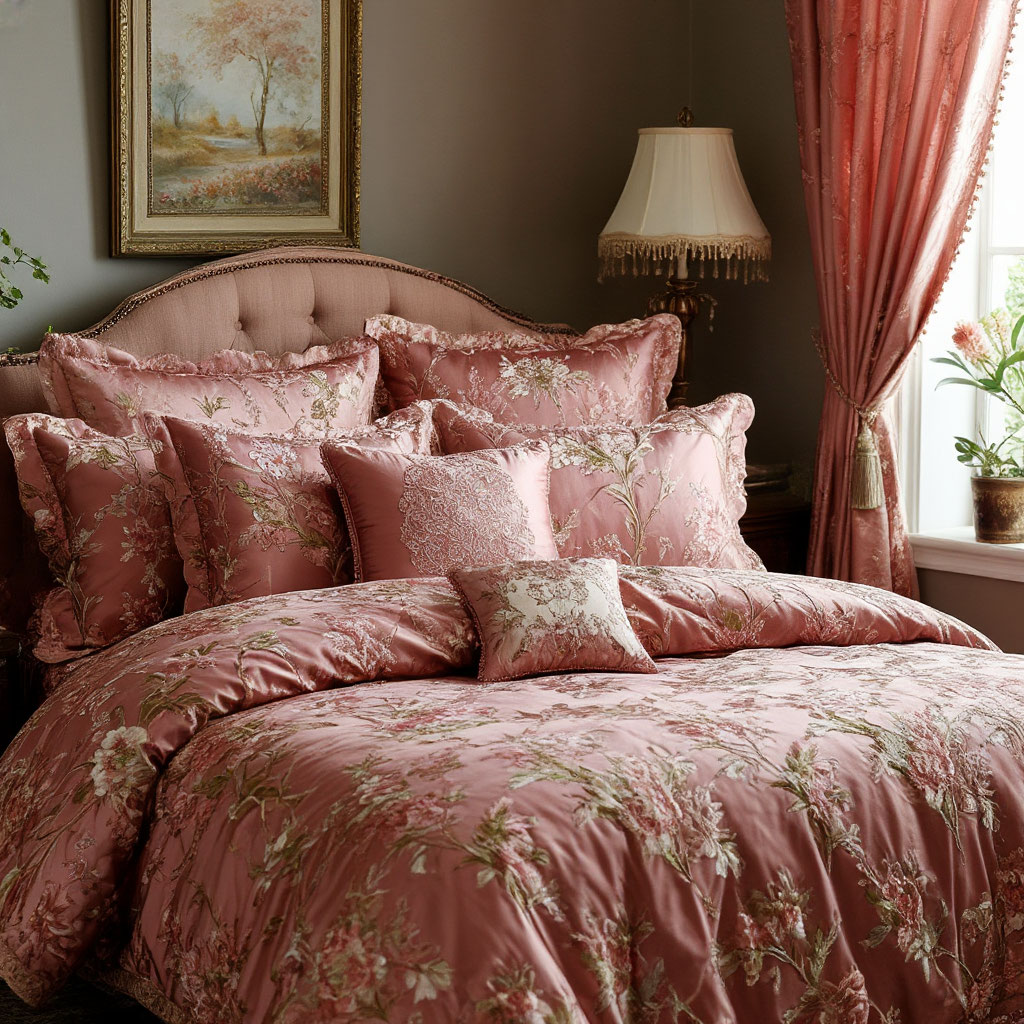
Best Sewing Projects for Hemp Silk Threads
Hemp silk threads offer a unique combination of sustainability and luxury, making them ideal for a wide range of sewing projects. Their natural strength, softness, and eco-friendly properties set them apart from conventional threads. Below are some of the best applications that highlight the benefits of hemp silk while showcasing its versatility as one of the finest eco-friendly sewing threads available.
1. Lightweight Apparel
Hemp silk threads excel in creating breathable, comfortable clothing perfect for warm weather. Their moisture-wicking and antibacterial properties make them especially suitable for:
- Summer dresses and blouses – The threads provide a smooth finish that glides through lightweight fabrics like linen, hemp blends, and organic cotton.
- Loose-fitting pants and skirts – Hemp silk’s durability ensures seams stay strong even with frequent movement.
- Loungewear and pajamas – The hypoallergenic nature of hemp silk threads makes them ideal for sleepwear, reducing skin irritation.
Compared to traditional silk, hemp silk offers better resistance to stretching, meaning garments maintain their shape longer.
2. Sustainable Home Textiles
For those looking to incorporate sustainable fabric alternatives into their home décor, hemp silk threads are an excellent choice. Their natural resilience makes them perfect for:
- Bedding and pillowcases – The threads’ strength ensures seams withstand regular washing, while their softness prevents irritation.
- Curtains and drapes – Unlike traditional silk, hemp silk resists UV damage, making it ideal for sun-exposed areas.
- Table linens and napkins – The antibacterial properties help keep fabrics fresher for longer.
Using eco-friendly sewing threads like hemp silk aligns with a zero-waste lifestyle, as they are biodegradable and free from synthetic coatings.
3. Durable Accessories
Hemp silk’s strength and natural sheen make it perfect for accessories that need to last:
- Tote bags and clutches – The threads provide reinforced stitching without the bulk of synthetic alternatives.
- Scarves and wraps – The lightweight yet sturdy nature of hemp silk threads ensures delicate edges don’t fray.
- Hats and headbands – Unlike traditional silk, hemp silk holds up better to sweat and frequent wear.
These projects benefit from the benefits of hemp silk, including its resistance to mold and odors—ideal for items used daily.
4. Eco-Conscious Children’s Wear
Parents seeking sustainable fabric alternatives for children’s clothing will appreciate hemp silk’s safety and durability:
- Onesies and swaddles – The threads are gentle on sensitive skin and withstand repeated washing.
- Soft toys and stuffed animals – Hemp silk’s natural strength ensures seams stay intact, even with rough play.
Since hemp silk is naturally hypoallergenic, it reduces the risk of skin reactions compared to conventional threads.
5. High-End Embroidery & Decorative Stitching
For embroidery enthusiasts, hemp silk threads add a luxurious touch without compromising sustainability:
- Artistic embroidery – The subtle sheen enhances designs on organic cotton, hemp, or bamboo fabrics.
- Visible mending – A stylish way to repair garments using eco-friendly sewing threads.
- Quilting accents – The threads provide durability while maintaining a refined finish.
When comparing hemp vs. traditional silk for embroidery, hemp silk offers better resistance to fraying and sunlight damage.
6. Travel-Friendly Gear
For those who prioritize sustainability on the go, hemp silk is excellent for:
- Travel pouches and passport holders – The threads resist wear from friction.
- Backpack reinforcements – Stronger than polyester threads yet more sustainable.
- Reusable produce bags – Naturally antimicrobial, reducing odors from food storage.
Why Choose Hemp Silk Threads?
The benefits of hemp silk make it a superior choice for sewists who value both performance and sustainability. Unlike traditional silk, it doesn’t require resource-intensive production, making it one of the best sustainable fabric alternatives. Whether you’re sewing clothing, home textiles, or accessories, hemp silk threads deliver durability, comfort, and eco-conscious quality.
By incorporating these threads into your projects, you support environmentally responsible crafting while enjoying a luxurious sewing experience.
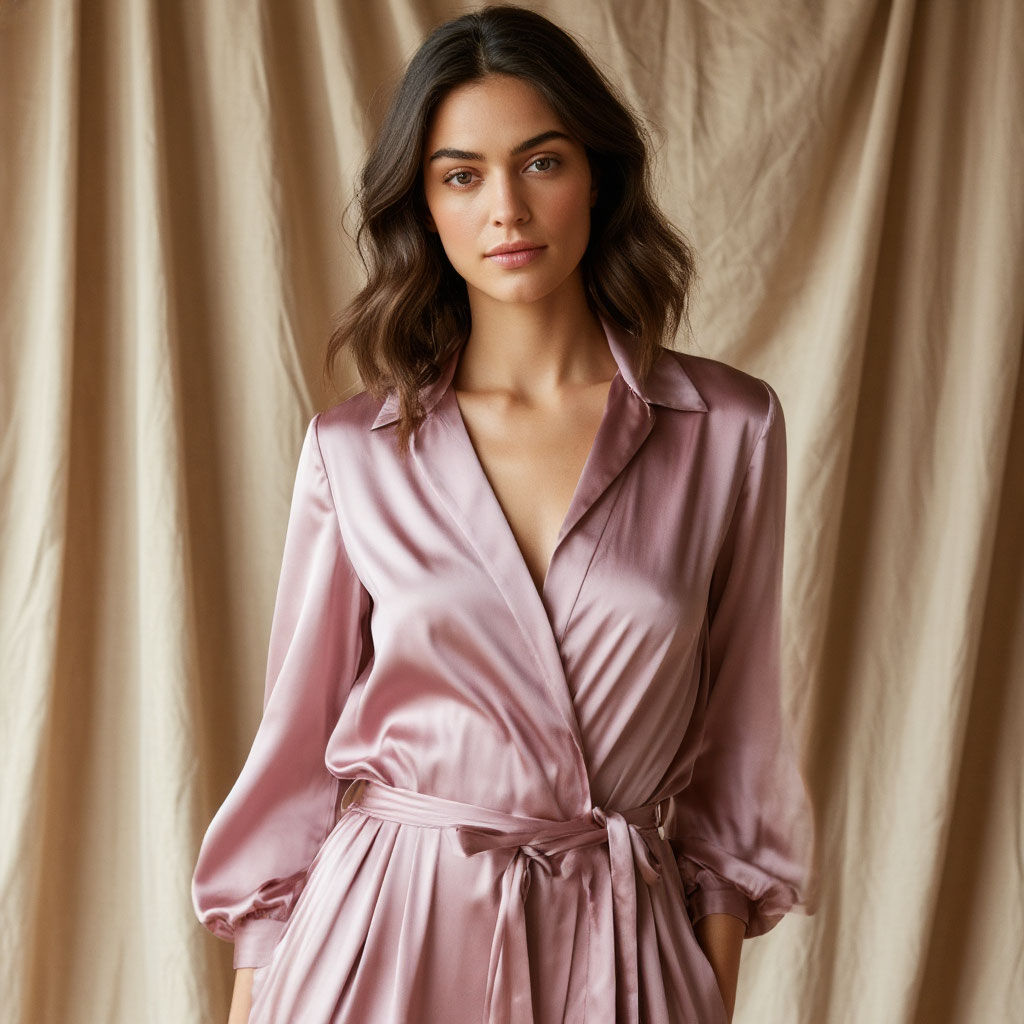
Where to Buy High-Quality Hemp Silk Yarn
For crafters seeking premium hemp silk threads, knowing where to source this remarkable material is essential. As one of the most eco-friendly sewing threads available, hemp silk combines the benefits of hemp silk with luxurious texture, making it a superior choice among sustainable fabric alternatives. Here’s where to find the best quality hemp silk yarn for your projects.
Specialized Online Retailers
Several reputable online stores specialize in sustainable fibers:
- Organic yarn shops offering certified hemp silk threads
- Eco-conscious marketplaces featuring small-batch producers
- Sustainable craft suppliers with GOTS-certified options
When comparing hemp vs. traditional silk in online stores, look for:
- Detailed fiber content descriptions
- Transparent sourcing information
- Customer reviews discussing durability
Local Fiber Arts Stores
Many physical yarn shops now stock eco-friendly sewing threads:
- Visit stores specializing in natural fibers
- Check with sustainable fashion boutiques
- Inquire at local weaving cooperatives
Examining hemp silk threads in person allows you to:
- Feel the unique texture that combines the benefits of hemp silk
- Compare different weights and blends
- Get expert advice on working with this material
Direct from Hemp Producers
Purchasing from hemp farms and processors ensures quality:
- Small-scale organic hemp growers
- Specialty fiber mills processing sustainable fabric alternatives
- Artisan collectives creating small-batch yarns
This approach offers:
- Complete traceability of materials
- Opportunities to learn about processing methods
- Access to unique, locally-produced blends
Sustainable Textile Suppliers
Companies catering to green designers often carry:
- Wholesale quantities of hemp silk threads
- Sample packs for testing different weights
- Educational resources about hemp vs. traditional silk
International Sources
For the widest selection:
- European suppliers with long hemp traditions
- Asian markets offering heritage hemp varieties
- North American producers using modern techniques
When ordering internationally, consider:
- Shipping methods and their environmental impact
- Import regulations for plant-based fibers
- Certifications verifying sustainable practices
Evaluating Quality
Regardless of source, premium hemp silk threads should have:
- Consistent diameter throughout
- Smooth texture without excessive fuzz
- Natural coloring or even dye distribution
- A pleasant, earthy hemp aroma
Understanding Value
While hemp silk threads may cost more than conventional options, their benefits of hemp silk include:
- Exceptional durability compared to traditional silk
- Lower environmental impact than synthetic threads
- Natural antimicrobial properties
Storage Recommendations
Preserve your eco-friendly sewing threads by:
- Storing in breathable fabric bags
- Keeping away from direct sunlight
- Maintaining moderate humidity levels
For those new to working with sustainable fabric alternatives, consider starting with:
- Sample sizes to test different blends
- Medium-weight options for versatility
- Undyed varieties to appreciate the natural fiber
As awareness grows about hemp vs. traditional silk, more suppliers are offering these remarkable threads. By choosing quality hemp silk threads, crafters support sustainable agriculture while enjoying a luxurious, durable material that elevates any project. The extra effort to find reputable sources pays dividends in both crafting results and environmental impact.
Hemp silk threads represent the ultimate fusion of luxury and sustainability for conscious creators. These innovative eco-friendly sewing threads deliver all the benefits of hemp silk – exceptional durability, natural antibacterial properties, and a beautiful drape – while outperforming traditional silk in environmental impact. When comparing hemp vs. traditional silk, the advantages become clear: hemp silk threads require minimal water, no pesticides, and leave a smaller ecological footprint. As one of today’s most remarkable sustainable fabric alternatives, hemp silk threads allow crafters to create with both conscience and confidence.
The benefits of hemp silk extend beyond the sewing room, supporting regenerative agriculture and reduced chemical use. Unlike conventional options, these threads prove that environmental responsibility can coexist with uncompromising quality, making hemp silk threads the smart choice for projects that demand both luxury and sustainability. You can now download a hemp silk threads checklist — a practical tool to help you select, maintain, and create with this eco-friendly material while achieving professional results.
